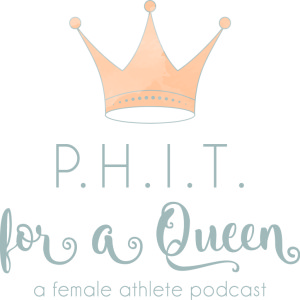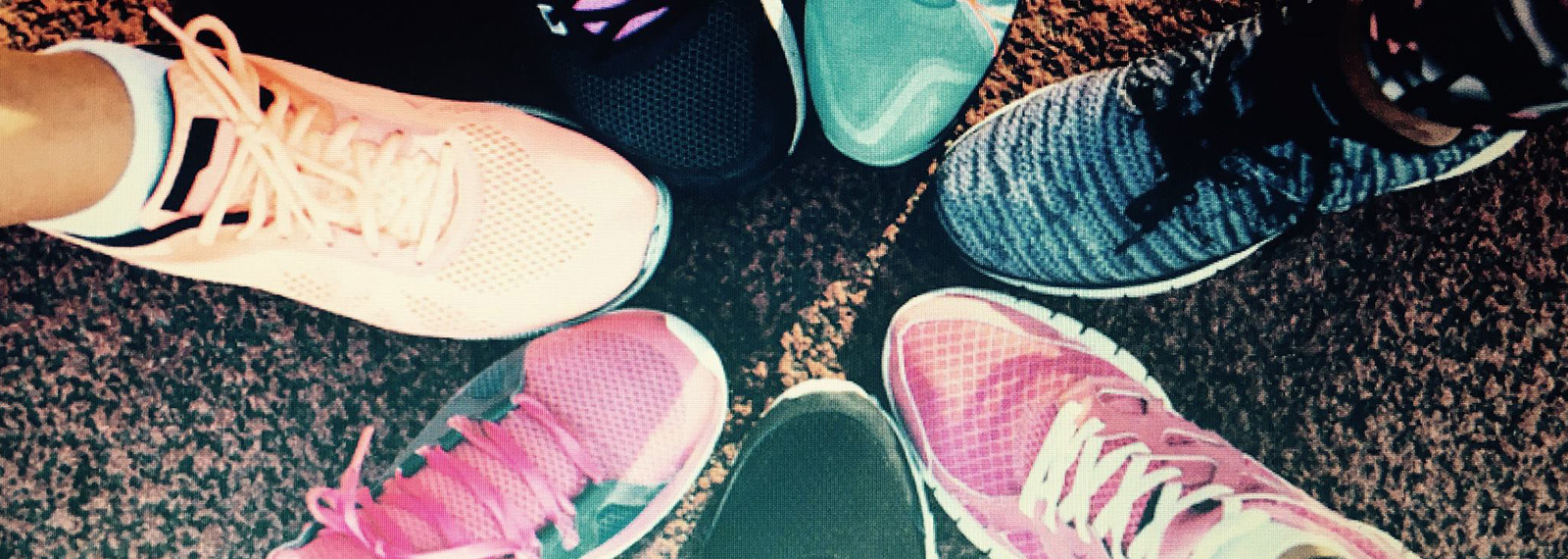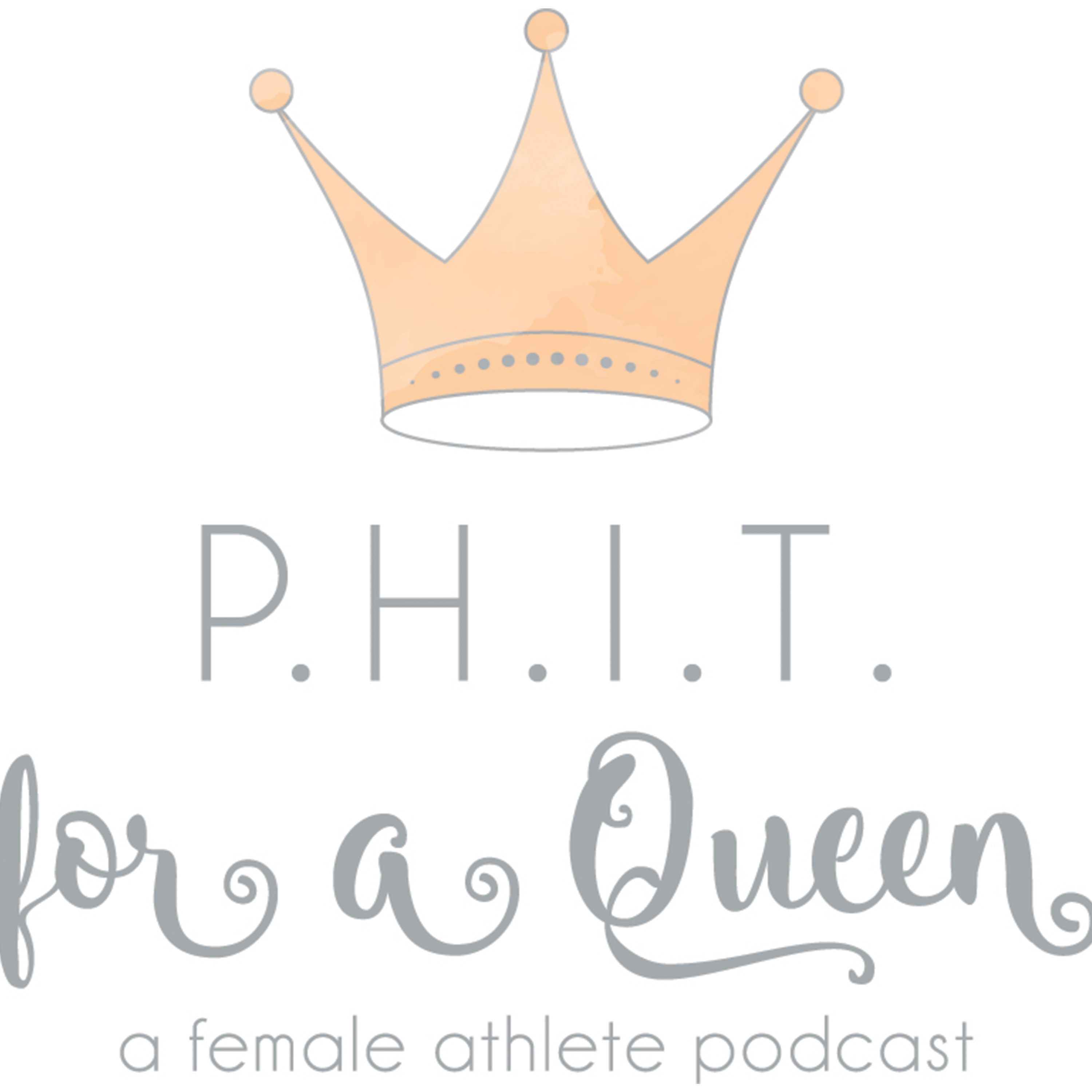Episodes

Friday Oct 25, 2019
Friday Oct 25, 2019
Clip-8.58 “ Some say the wave I surfed was 40- 50 foot, bigger than a house.
Bethany Hamilton shares “How surfing was in her blood and she knew nothing would keep her from her passion” on PHIT for a Queen.

- Surfing was just something she was destined for.
- While in the hospital recovering a fellow surfer who lost a leg from a shark but didn’t keep him from surfing.
- An important part of surfing is understanding the ocean.
- Started with a short film that was focused on high-performance surfing ended up in a documentary.
- She has a passion for riding bigger and scarier surfs and the highlight was surfing The Jaws.
- I didn’t know what I was capable of but I was willing to try.
- We can all overcome more than we know!
- My faith in God was my rock in a hard place.
- So many of us are more unstoppable than we know!

Check out the teaser to her incredible story:https://www.youtube.com/watch?v=O5MsXjUQLYM
Professional surfer Bethany Hamilton is a global icon and inspirational beacon. She rose from the personal tragedy of losing her arm to a tiger shark at the age of thirteen to becoming one of the world’s leading female surfers. BETHANY HAMILTON: UNSTOPPABLE follows Bethany over a four-year journey, capturing what it means to be unstoppable. In 2005, she took a first-place result in the National Amateur Competition, just 9 months after the tragedy occurred. She went on to become a Billabong XXL Global Big Wave Award Nominee and two years later she was honored by ASP with the Peter Whittaker Award for “Integrity, Respect, Achievement, and Sportsmanship while displaying a passion for surfing.” Soon thereafter, she met and married her soul mate, Adam Dirks, and the following year, she came in first place at the Women’s Pipeline Pro. In 2015, Bethany and Adam welcomed their first child Tobias and within a year of giving birth, she surfed the most dangerous wave in the world – “Jaws.” Following that remarkable achievement, Bethany went on to finish third in the Fiji Pro beating a six-time World Champion and the 2016 World Champion. Bethany continues to prove that nothing will stop her from achieving her dreams and inspiring millions of people along the way

Friday Oct 18, 2019
Female Brain Injury In Sport: What We Know and Still Need to Know.
Friday Oct 18, 2019
Friday Oct 18, 2019
Dr. Donna Duffy dives into the impact of concussions on females, how women and girls present and recover differently, and how much we still don’t know about this injury in sport.

* You get a concussion when you have a blow to the head and body that causes your brain to move back and forth in your skull. Your brain can have different reactions when this happens, there is disruption there and this can be a concussive experience. Body blows can also cause a concussion.
* The HPA axis is something that can make a concussive experience different for women and girls. Progesterone and estrogen are released when from the HPA axis when the brain sustains trauma, and this is a hugely under-researched topic.
* The disruption from the concussion can cause these hormones not to produce and secrete like they are supposed to.
* Dr. Duffy is interested in sub-concussive trauma; trauma to the brain that does not result in immediate symptoms such as dizziness, confusion, nausea, loss of consciousness. Sub concussive trauma is not something that disrupts play or your regular activities.
* Most athletes know how to work around the assessment of a concussion to go out and return to play.
*Some researchers believe that women present stronger or more exaggerated symptoms, and they take longer to recover. Dr. Duffy argues that there is some bias in some of the research and literature and how it has been written in terms of female concussions.
You Know She is Legit:
Dr. Donna Duffy has a joint appointment at the University of North Carolina at Greensboro (UNCG)-Donna is an Associate Professor in the Department of Kinesiology (KIN) and a Director in the Center for Women’s Health and Wellness (CWHW) in the School of Health and Human Sciences. Donna completed her Ph.D. in the Department of Kinesiology at UNCG in 2007. Prior to coming to UNCG, Donna completed her B.S. and her M.Ed. at Boston University in Boston, MA. Donna has graduate faculty status at UNCG where she teaches in the Athletic Training Program and the Ed.D program. Donna also coordinates the undergraduate Sport Coaching Minor in KIN. Donna has an active research agenda called the Female Behavior and Recovery after Injury and Neurotrauma (BRAIN) Project, focused on neuroendocrine function and dysfunction in female athletes after a concussion, as well as the cognitive and neuromotor consequences of a concussion. Donna is also involved with research projects in the Virtual Environment for Assessment and Rehabilitation Laboratory (VEAR) under the direction of Dr. Chris Rhea at UNCG, where she is focused on neuromotor function and changes of female athletes before and after a concussion. In addition, Donna collaborates closely with Dr. Jenny Etiner, Dr. Laurie Wideman, Dr. Scott Ross and Dr. Will Adams at UNCG. Donna also has research collaborations with many faculty and clinicians outside of UNCG including the Female Athlete Program at Boston Children’s Hospital, the CTE Center in the School of Medicine at Boston University, Gaelic Games for Girls at University College Cork, in Cork Ireland and with various community organizations including, Greensboro Roller Derby, PINK Concussions, the Girls Athletic Leadership Schools in Denver and Girl Fit in Newton, MA. Donna is the Research Consultant for PINK Concussions and serves on their Board of Advisors. Donna also holds a Research Scientist position under Dr. Kate Ackerman at Boston Children’s Hospital and Donna was a Visiting Research Scientist in the Department of Neurology and the CTE Center in the School of Medicine at Boston University. Donna is on the Board of Directors at the Women’s Resource Center in Greensboro, NC and serves as the Managing Editor of the Women in Sport and Physical Activity Journal. Donna's research on female athletes and head injuries has been published in several peer-reviewed journals and Donna was recently quoted in the NY Times on her work related to female athletes and concussions and has been a guest on several podcasts.
How to Connect and work with Dr. Donna Duffy:
UNC Greensboro Center of Women’s Health and Wellness
https://hhs.uncg.edu/cwhw/faculty-staff/
https://www.pinkconcussions.com/


Friday Oct 11, 2019
Friday Oct 11, 2019
Adam McAboy shares “Why He developed a community for athletes to not feel alone- The Athlete’s Village.” on Phit for a Queen.

- Found people were like sponges for expert information.
- Found now as coaches he and Mark Henderson (swimmer in the Atlanta Olympics) were in the same boat.
- Wanted a platform for current and former athletes to give back to sport.
- As an athlete, we avoid showing weakness.
- The Village brings about many different perspectives.
- Can follow many different areas of interest or topics
- Athletes can post questions even anonymously
- Experts in the community love to support
- https://www.theathletesvillage.com/

So you know he is legit:
Adam has privately coached and mentored many young athletes and has worked as a coach for the Novato, CA mountain biking teams. He enjoys working to understand the individual athlete's strengths and vulnerabilities and developing an individualized plan, according to the needs of the young person. He finds great joy in watching young people develop not only into more fulfilled and healthier athletes but also (even more importantly) into stronger, more complete and balanced individuals. It is to this end that Adam has joined forces with fellow Cal Alumnus and Olympic swimmer, Mark Henderson, to create The Athletes Village, a business that focuses on making an athlete's experience in sports more rewarding and fun by offering valuable, relevant sports information. Adam's drive and enthusiasm for the task at hand, coupled with his strong ability to bring people together to communicate and create effectively, will help the Athletes Village achieve its goal of inspiring and educating young people to obtain their potential in sports and in life.
Currently, 70% of kids who start organized sports in the United States will quit by the age of 13. Even more disturbingly, a child under the age of 17 is brought to the E.R. in the United States every 25 seconds with a sports-related injury, a stat that many experts believe can be significantly cut by injury prevention education. The Athletes Village is working to change this sad reality and to ensure that all levels of young athletes, their parents, and coaches, have a fun, healthy, character-building sports experience. Ultimately, The Athletes Village aims to create "athletes for life".
Mission
Our mission is twofold. First, we want to help athletes, parents, and coaches achieve their dreams, avoid injuries and have more fun regardless of their age, gender, race, religion, financial status or location.
Second, we are building a platform where current and former athletes can go to give back to the sport they love, support the next generation and eventually make some extra income when we build our marketplace.
Why I decided to build the Athletes Village.
I have always believed that it is important to continue to push one’s self and to pursue new ventures. This can include anything from cooking or playing an instrument, to learning about history or other languages to learning new sports and skills. Even though it has been years since I competed at a high level, I have always felt connected to track and field and have enjoyed working with kids of many levels. As my friends’ kids entered high school sports, I found myself being called upon more and more for advice for their kids who were taking up running. Even though my experience was years old, the “expertise” that I possessed was something valuable for my friends and their kids.
My co-founder, Mark, was having the same experience. And to add to that, he was having a difficult time finding valuable information on how to coach his own kids in sports that he never engaged in. In 2015, Mark and I had a conversation about this and decided that we should try to build a platform that would solve these issues.

Friday Oct 04, 2019
Brain Tools from a Sports Psychologist
Friday Oct 04, 2019
Friday Oct 04, 2019
Dr. Erin Haugen is a Sports Psychologist working with athletes and high performers. She shares some of her tips and tools for tackling some negative self-talk that can impact our performance.

- Haugen shares how she has been involved in educating on mental health and breaking mental health stigmas within the athletic training field. Collaborating with other fields within the sports world helps the athlete as well as our own well being.
- Something that Dr. Haugen focuses on in therapy with athletes and high performers is focusing on the negative mindset that they might have and focusing more on the middle ground and having a non-judgemental stance.
- We need to be aware when we are "scolding on ourselves” Let’s put away our shoulds about something we did, and let’s look at the why.
You Know She’s Legit:
Erin Haugen, Ph.D., LP, CMPC, is a licensed clinical psychologist and sport psychologist in Grand Forks, ND. She is passionate about sport performance, athlete mental health, interprofessional practice, and professional well-being.
Dr. Haugen has a Ph.D. in clinical psychology and is a Certified Mental Performance Consultant (CMPC) through the Association for Applied Sport Psychology. She completed her pre-doctoral internship at River Valley Services/Connecticut Valley Hospital in Middletown, CT and post-doctoral residency at the University of California, Davis Medical Center in Sacramento, CA. She works with athletes from over 20 different sports from recreational to elite (Olympic and professional) levels and specializes in working with collegiate student-athletes.
Dr. Haugen is employed at Assessment and Therapy Associates of Grand Forks (ATAGF), PLLC. She is also an adjunct faculty member in the Department of Psychology at the University of North Dakota and faculty member at Altru Family Medicine Residency. She teaches sports medicine fellows from family medicine and physical therapy as well as athletic training students. She provides consultation and mentorship for professionals interested in enhancing their work with athletes or pursuing the CMPC credential. She is also a past president of the North Dakota State Board of Psychologist Examiners (NDSBPE).
In her spare time, Dr. Haugen competes in triathlons and enjoys camping and hiking with her husband and three border collie mix rescue dogs: Molly, Fromm, and Eddie.
To find out more about Dr. Haugen’s work and practice information go to:

